ICDI now has its own website! Please visit
www.icdichicago.org
for the latest news and information
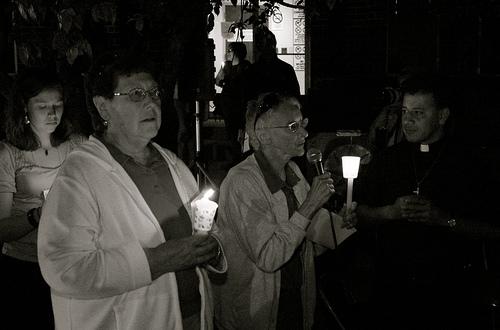

ICDI now has its own website! Please visit
www.icdichicago.org
for the latest news and information
Chicago-Cinquera Sister Cities’ annual Bowl-a-Rama to raise funds for the rural community of Cinquera, El Salvador, is coming up again, and CRLN will be forming a team. Will you bowl with us? Will you form your own team? Call the CRLN office at 773-293-2964 and let us know if you will participate by collecting pledges from donors and spending a few hours bowling with others interested in people-to-people development. The cost to bowl is $25, but if you collect $50 or more in pledges, bowling is free!
Chicago-Cinquera is a community to community-based solidarity organization, whose collaboration seeks to work together to build an international movement for social justice and human dignity through a hopeful alternative strategy and vision for development. For more information, go to
www.chicago-cinquera.org
.
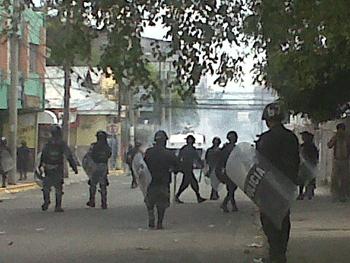
CRLN’s partners, La Voz de Los de Abajo, report on their blog about the latest military and paramilitary violence in Honduras. Media, newspapers, radio stations, and journalists have been targeted for repression, abduction and execution; this latest episode included a police attack on Radio Uno in the town of San Pedro Sula. At least one death was reported. For more information, check La Voz de Los de Abajo’s blog Honduras Resists at
http://hondurasresists.blogspot.com/
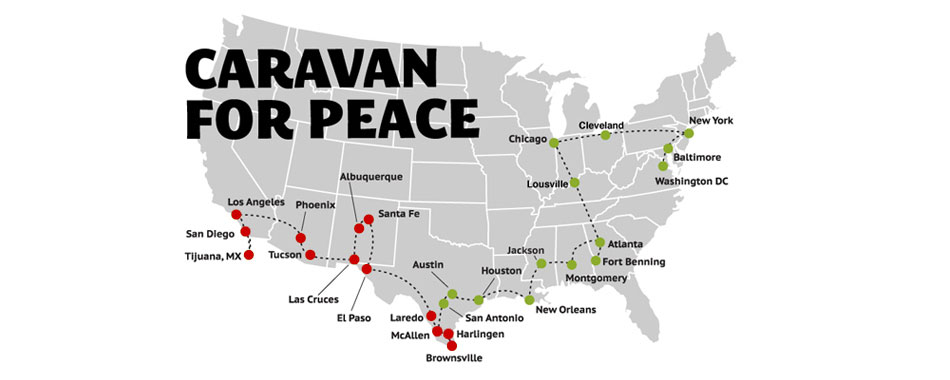
The Caravan for Peace is a movement of activists making their way across the US to promote peace and dignity for all victims of Mexico’s drug war. Javier Sicilia, the leader of the Caravan, is a poet and peace leader whose son was murdered in the drug violence in March of 2011. Inspired by this tragedy, Sicilia has been speaking out, bringing to light the urgency of the peace movement.
The importance of creating this conversation within the US is not lost on the caravan’s leaders. An end to drug prohibition, a policy widely discussed in Latin America, is a phrase hardly uttered in US political circles, while at the same time communities of color continue to be disproportionately incarcerated for drug-related offenses in this country. And while the prison industrial complex thrives in the US, guns continue to be funneled to our neighbors south, exacerbating the militarization of Mexico’s law enforcement and ‘Drug War’ strategies.
The Caravan seeks to awaken these issues in American consciousness and bring to light the inherent links between the social fabrics of Mexico and the US. Traveling across the country and across the border, the Caravan seeks to build a discourse of peace and justice as well as a movement of international solidarity. Ending in DC in September, just 6 weeks before US Presidential elections, this movement is meant to not only create a conversation, but also to bring to fruition policies of peace and dignity for all those, internationally, who are affected by the violence in our transnational drug war.
For specific dates and times of the Caravan’s stop in Chicago, see the Caravan for Peace website here !
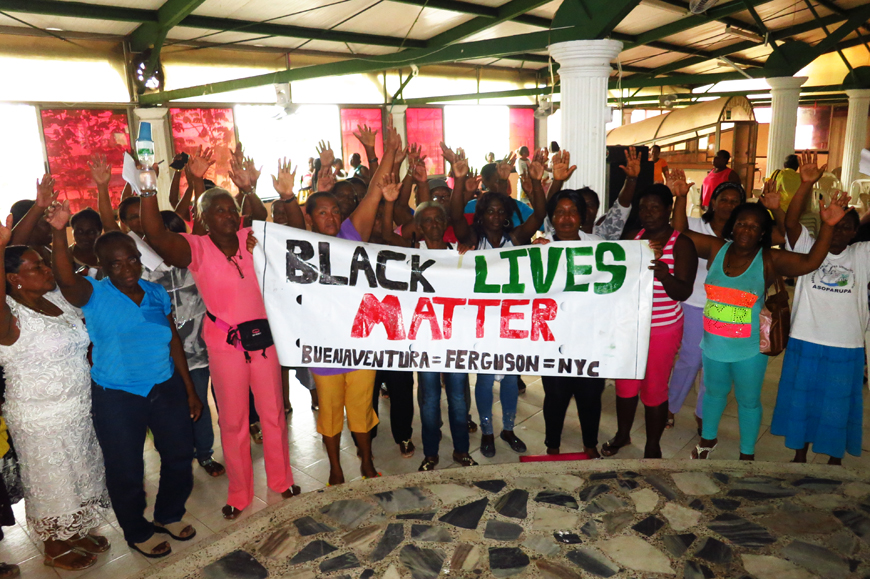
Introduced on March 25 by Hank Johnson (GA), this resolution recognizes the work that the Colombian Constitutional Court has done for Internally Displaced Persons (IDPs) in Colombia, specifically Afro-Colombians, Indigenous peoples, and women.
The Resolution succinctly sums up the situation of Colombia’s nearly 4 million displaced people, and recognizes that Afro-Colombians, indigenous, and women are disproportionately displaced and often face unique challenges. The Constitutional Court in Colombia has called on the government multiple times to offer protection to displaced communities and continues to be at the forefront of advocating for these communities. The Resolution supports those Court decisions and calls on the Colombian government to fulfill its role in protecting displaced communities.
Current Illinois Co-sponsors
Danny K Davis (D-7)
Jesse Jackson, Jr. (D-2)
Bobby Rush (D-1)
Jan Schakowsky (D-9)
Phil Hare (D-17)
Mike Quigley (D-5)
For More Information
For the full text of the resolution and a full list of co-sponsors,
click here
Latin America Working Group’s Alert on HRes 1224
Support IDPs in Colombia by participating in
Days of Prayer and Action.
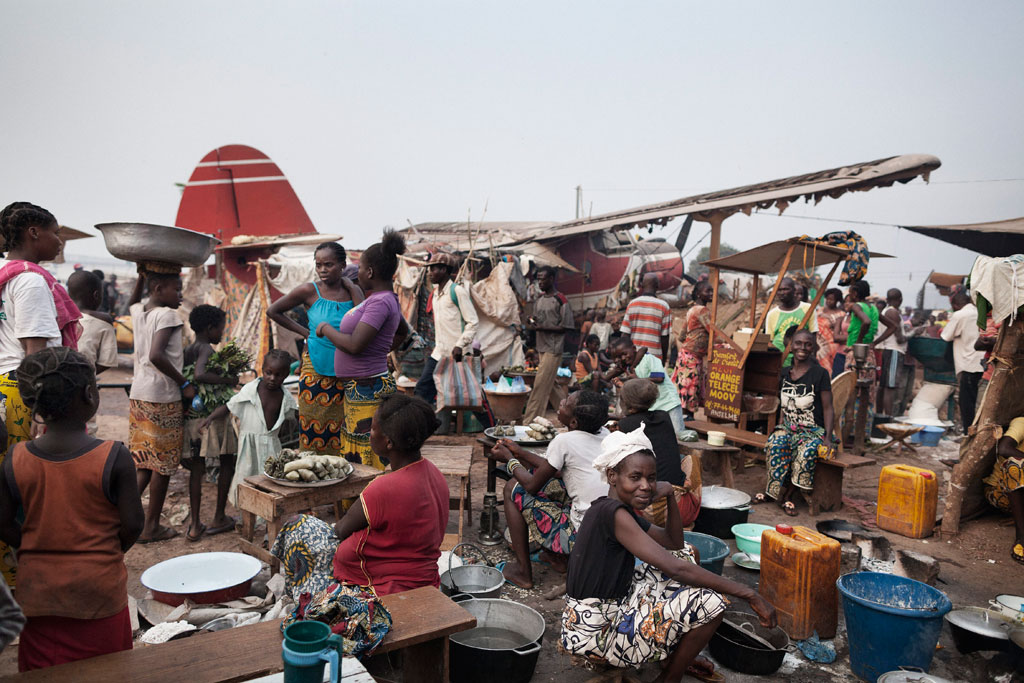

Face the Displaced
With over four million Colombians forcibly displaced from their homes by a debilitating war, Colombia is now the second worst internal displacement crisis in the world.
We would like to invite you, to help CRLN and people across the country do something about it.
On April 16-19, tens of thousands across the U.S. and Colombia will participate in this year’s Days of Prayer and Action for Colombia to call for a much-needed shift in U.S. policies toward the war-torn country. Please join us. Find out what you can do to by clicking “Read More.”
As you know,
the U.S. has for too long been part of Colombia’s problem, not the solution.
U.S. policy towards Colombia has been dominated by massive military aid, futile fumigations, and now a proposed NAFTA-style free trade agreement. In this moment of changing the way things are done in Washington, it’s our chance to call on President Obama to chart a new path with Colombia–one that halts the displacement, supports victims of violence, and opens avenues to peace.
To boost awareness of Colombia’s crisis and amplify the call for policy change, we are joining a dozen other national organizations in launching the fifth annual
Days of Prayer and Action for Colombia.
In March, hundreds of universities, faith communities, and organizations will be assembling thousands of printed faces of Colombia’s displaced people to be later displayed in poignant, eye-catching displays. While displaced people’s faces make appearances in numerous cities and towns in April, congregations across the country will be praying for peace in Colombia-focused worship services. The anticipated tens of thousands of participants will have the opportunity to send messages to the Obama Administration asking for policy changes needed to make peace in Colombia possible.
Here’s how you can get involved:
1.
Dedicate a worship service to Colombia in April.
On the weekend of
April 16-19,
hundreds of faith communities in the U.S. and Colombia will incorporate Colombia into the weekly worship service to raise awareness of the spiraling displacement andpray for peace. Please suggest to your faith community leaders this week that a worship service focuses on Colombia. We will provide you with a packet of sample sermons, prayers, background info, bulletin inserts, and other materials to help bring this critical Colombia focus.
2.
Host a “Face the Displaced” party in March.
Throughout the month, student, church, and community groups will be gathering to print and assemble thousands of faces of those currently displaced in Colombia. Through their portraits and accompanying statements, featured Colombians will tell participants the oft-tragic and oft-inspiring stories of their struggles to cope with displacement. Please ask your student club, church group, or community organization to consider doing a “Face the Displaced” party in March. We will provide you with a packet of faces, stories, instructions, factsheets, and other helpful materials.
Host your own event in March
or join CRLN and our Chicago partners for a workshop on
April 16th, 4-6pm at 8th Day Center for Justice.
3.
Display the displaced in a public demonstration in April.
Thousands of faces of Colombia’s displaced, upon being assembled in “Face the Displaced” parties, will be displayed in moving public demonstrations across the country in April. Please ask your student group, congregation, or community organization to consider setting up a public display. We will provide faces assembled in your area, in addition to tips on pulling off an effective display/demonstration. After April, the faces of the displaced will all be sent to Washington, D.C. for one final, massive display and to be presented in person to representatives of the Obama Administration. Join us at
Federal Plaza
on
April 19th, 11:30am-2pm
to raise awareness here in Chicago!
4. National Call in Day, April 19th.
Join people all over the country in calling Congress to demand a new direction in US-Colombia foreign policy. We are especially asking our Members of Congress to co-sponsor
HRes 1224
, which protects the rights of Afro-Colombians and Indigenous peoples.
Click
here
for Witness for Peace’s Packet of instructions and resources for Days of Prayer and Action.
I hope you’ll consider standing with millions of displaced Colombians in this growing effort to bring meaningful U.S. policy change. Please let me know your thoughts. I am happy to provide the materials mentioned above and answer any questions you may have. Email me at
earmstrong@crln.org
for more information.
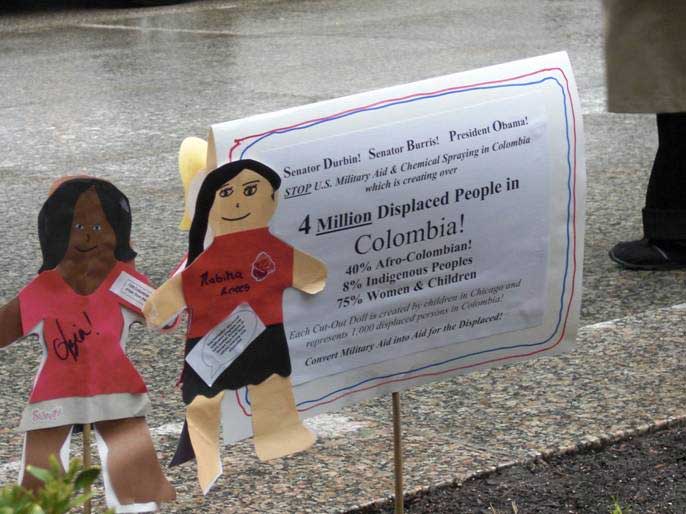
While there is not currently a specific bill on Colombia currently in Congress, CRLN and our partners continue to educate Members of Congress about the issues facing the country. See below for some good resources that you too can use when talking to your representatives.
Recent Congressional Dear Colleague Letter on Colombia Policy
PC(USA) General Assembly Report on Human Rights in Colombia
United States Office on Colombia
Center for International Policy’s Colombia Program
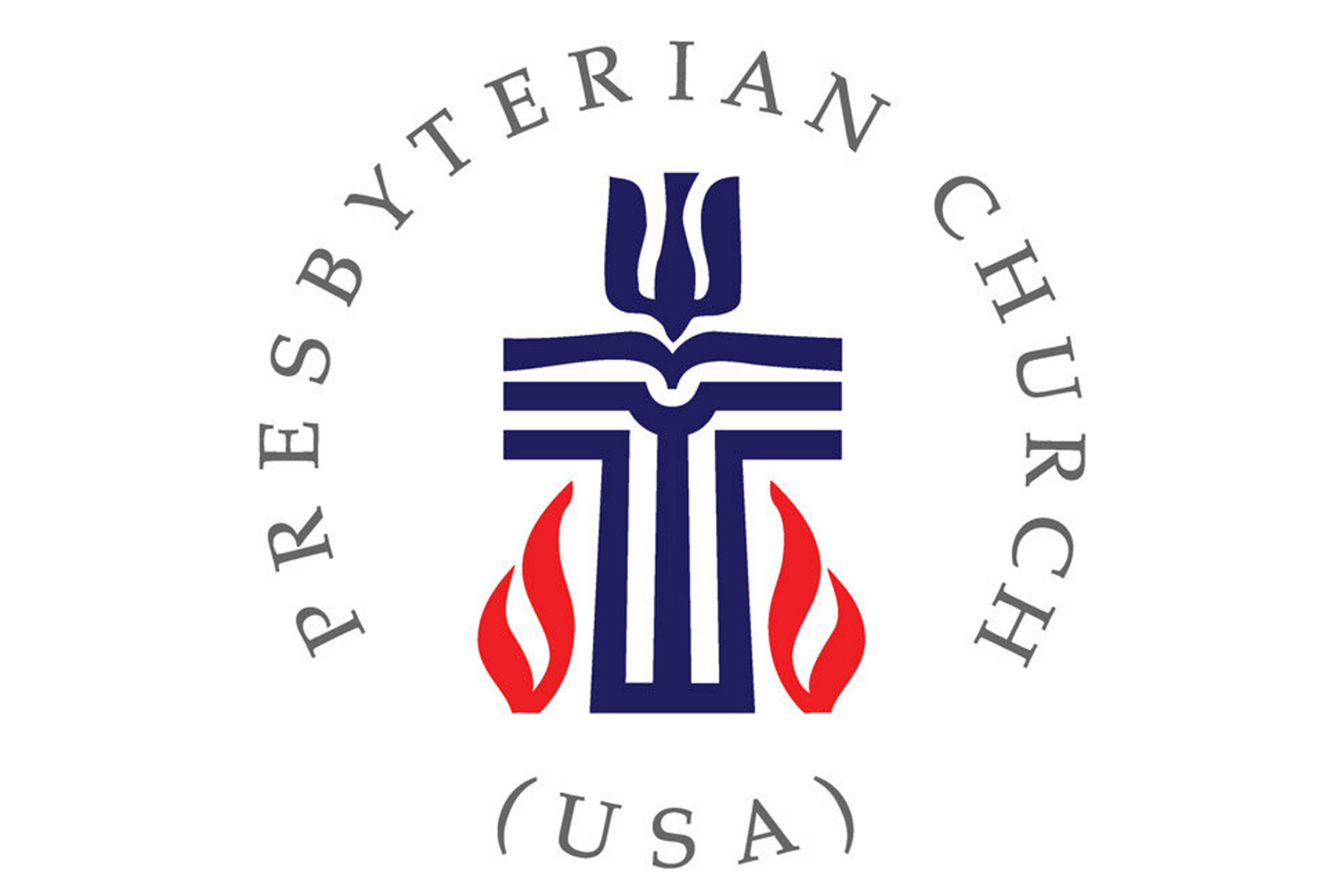
General Assembly Council100 Witherspoon St
Louisville KY 40202
Tel 502-569-5315
Fax 502-569-8039
The 218th General Assembly approved Item 11-18:
Report on Human Rights in Colombia
From the Advisory Committee on Social Witness Policy and the Presbyterian Peacemaking Program
The Advisory Committee on Social Witness Policy (ACSWP) and the Presbyterian Peacemaking Program (PPP) recommend that the 218th General Assembly (2008) of the Presbyterian Church (U.S.A.) do the following:
1. Call on the members and congregations of the PC(USA) to study the situation in Colombia, diligently pray for the work of the Presbyterian Church of Colombia, and advocate with senators, representatives, and the president of the United States to lay down the weapons of violence and support the nonviolent struggle of the churches and civil society of Colombia and those in the U.S. who stand beside Colombians to end the violence by:
2. Direct the World Mission’s ministry area, in consultation with the appropriate entities of the General Assembly Council (GAC) and the Office of the General Assembly (OGA), to continue to monitor the situation in Colombia, and to keep the whole church abreast of these findings; and to offer advice and counsel, as needed, about how this denomination can continue to support the peacekeeping efforts of our partners in Colombia.
3. Direct the Presbyterian Washington Office (PWO) to continue to educate the members of the Presbyterian Church (U.S.A.) and their representatives in the Congress of the United States of America about the effect of American legislation on the lives of individual Colombian citizens with particular emphasis on Plan Colombia and the Free Trade Agreement.
4. Direct the Presbyterian United Nations Office (PUNO) to continue to represent the concerns of the Presbyterian Church (U.S.A.) to the committees and delegates of the United Nations.
5. Affirm and further encourage the work of the Accompaniment Program of the Presbyterian Church (U.S.A.) that watches over and shadows vulnerable and threatened Colombia citizens as they seek justice for their most threatened and needy population.
6. Direct the appropriate entities of the General Assembly Council (GAC), in consultation with the Office of the General Assembly (OGA), to continue to monitor and address human rights violations in the United States, and in other nations brought to their attention by the members of this denomination and/or the partner churches.
7. Direct the Stated Clerk to write to the members of Congress of the United States of America, urging them not to ratify the Free Trade Agreement with Colombia, which would have grave consequences for workers, indigenous and Afro-Colombian populations, and the environment.
Your members of Congress owe their seat in Congress to votes from your district and state. Money matters far more than it should in American politics, and it may often seem that members don’t listen. But members of Congress
do
pay attention to their constituents, and
you
can have an impact. Congressional offices count the letters they receive ON various issues, and
your action to send letter can have a direct effect on votes and actions
Most foreign policy issues aren’t front and center for members of Congress. On a back-burner issue, even a small number of letters can make a BIG difference.
If you belong to a non-governmental, religious, grassroots or community organization, you can build a personal connection between your organization and your congressional offices on a set of issues that can significantly advance your cause.
1. To make a meeting with your member of Congress or one of their staff, follow the same directions as above; but rather than telling them what you would like them to do over the phone, simply tell them which issue you would like to discuss in person, and ask them when they and/or the member would be available for a meeting to discuss your issue.
2. A very effective tactic is to organize a group meeting of constituents who can speak from a variety of backgrounds (academic, religious, business…) and ask for a meeting with the member himself/herself.
3. In order to schedule a meeting with the member, it is likely that you will be asked to fax a formal meeting request letter to the member’s scheduler. This is normal procedure.
1.
Introduce yourself and your local community links
(groups associated with, member of a board, etc). Say what you want to talk about, which issue and piece of legislation.
2.
Find something to thank them for.
If they’ve voted right in the past, make sure to mention that (it is a good idea to know your member’s voting record on the issue before you go into the meeting).
3.
Get the member or aide to talk.
Ask what the member’s position is on the legislation and why. Do they support specific amendments? How will they vote? This will give you a framework to shape your dialogue and address their issues.
4. Often you might be talking about an amendment that the member doesn’t know well.
Be prepared to explain the amendment
briefly and ask if she/he wants more information.
5.
Ask for something more and something specific
. Open with a specific request. If the member is already on your side, ask for something more. If the member is good on the issue, show her/him a list of needed representatives or senators. Ask which ones she/he knows well enough to ask to support getting favorable action on the amendment.
6.
Stay on message.
Don’t be put off by smokescreens or long-winded answers. Bring her/him back to the point. Keep control of the visit.
7.
Speak from your experience.
If you are meeting with your member’s office on Cuba and have traveled to Cuba or have heard a Cuban speak, share your story. You do not need to be an expert. Bring as many facts about which you feel comfortable to the table, but give stories from your experiences if possible. Don’t stray from the real facts, however!
8.
Present supporting documents
, such as relevant local editorials, denominational church statements, etc. Underline or highlight the most relevant portions of the document and reference the information as you hand it to the aide or member.
9.
Close the deal.
Get a commitment on your specific request. If you got a “yes,” then you are done. If not, ask what the member would need in order to do what you want. Then follow up on those concerns.
10.
Continue to build the relationship.
Relationships go through ups and downs, but they continue. Send a thank-you note. Keep in contact with the staffer as you receive new information or as votes approach. After the vote, give your member feedback-either thank her/him, or express your concerns if she/he voted against the amendment you were supporting.
Do’s
Don’ts

Below you will find contact information for groups who can help you find family, friends or members of your congregations in detention.
The
Illinois Coalition for Immigrant and Refugee Rights (ICIRR) Family Support Hotline – 1-855-435-7693 or 855-HELP-MY-F(amily) — is a good place to start.
It connects families in crisis with reliable and immediate information, referrals to legal, ministry, and social services – while also providing a long-term connection to someone who can help them locally. Click
here
for the ICIRR website.
Contact the
Interfaith Committee for Detained Immigrants (ICDI)
–
1-773-779-6011 ext 3846 –
for information about detention centers, weekly vigils at detention centers, and how to get care packages to loved ones in detention. Click
here
for the ICDI website.
Enforcement and Removal Operations (ERO)
: For information on detainees housed at an Immigration and Customs Enforcement facility, family members and attorneys should contact Chicago field office: 101 West Congress Parkway, Suite 4000, Chicago, Illinois 60605,
Phone:
(312) 347-2400
~~~~~~~~~~~~~~~~~~~~~~~~~~~~~~~~~~~~~~~~~~~~~~~~~~~~~~~~~~~~
INFORMACION PARA ENCONTRAR ALGUIEN EN DETENCION
A continuación encontrará información de contacto de grupos que pueden ayudarle a encontrar a familiares, amigxs o miembros de sus congregaciones en detención.
La Coalición de Illinois para Inmigrantes y Refugiados
(ICIRR por sus siglas en ingles) tiene una línea de ayuda para familias – 1-855-435-7693 o 855-HELP-MY-F (amily) – este es un buen lugar para comenzar. ICIRR Conecta a las familias en crisis con información confiable e inmediata, proporciona referencias a servicios legales, ministeriales y sociales – al mismo tiempo que provee una conexión a largo plazo con alguien que pueda ayudarles localmente.
Haga clic aquí para ver el sitio web de ICIRR.
Comuníquese con el
Comité Interreligioso para Inmigrantes Detenidos
(ICDI) 1-773-779-6011, extensión 3846- para obtener información sobre centros de detención, vigilias semanales en los centros de detención y cómo mandar paquetes de atención a sus seres queridos en detención.
Haga clic aquí para ver el sitio web de ICDI.
También puede tratar de localizar a personas a través del
Sistema en línea de localización de detenidos de ICE
en
https://locator.ice.gov
, llamando a la línea de ayuda de ICE al 1-888-351-4024 o llamando al consulado del país de origen del detenido.
Enforcement and Removal Operations (ERO)
: Familiares y abogados buscando información sobre personas detenidas con El Servicio de Inmigración y Control de Aduanas de Estados Unidos (Immigration and Customs Enforcement, ICE) pueden contactar la oficina central: 101 West Congress Parkway, Suite 4000, Chicago, Illinois 60605,
Teléfono:
(312) 347-2400